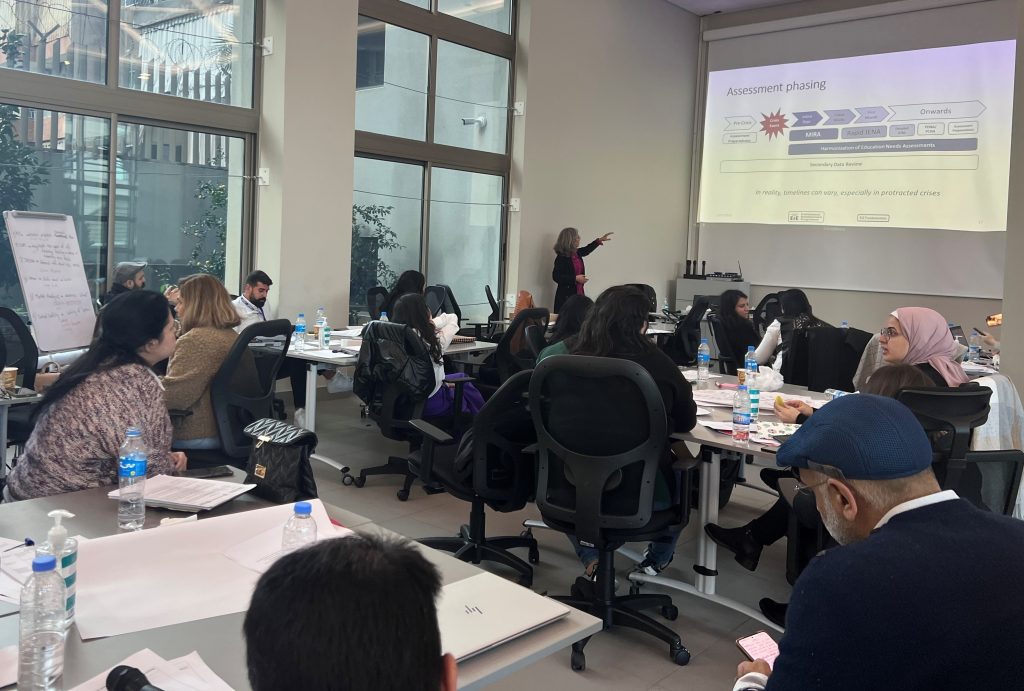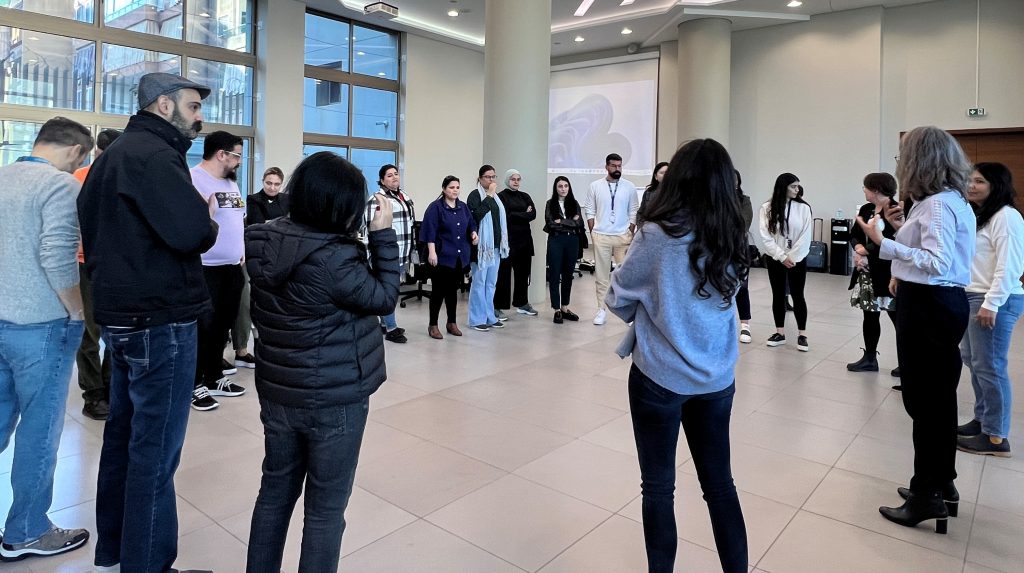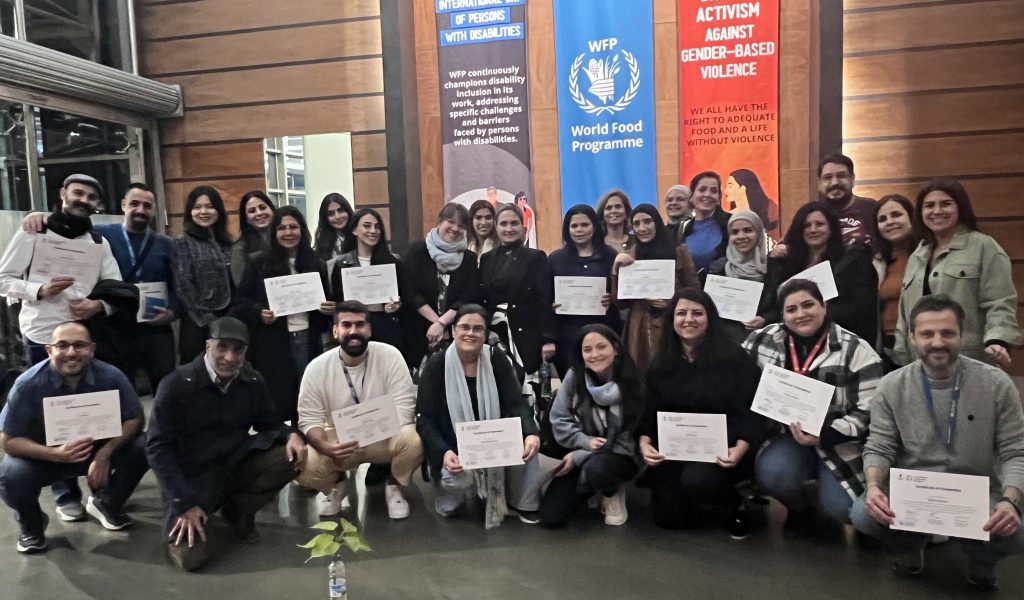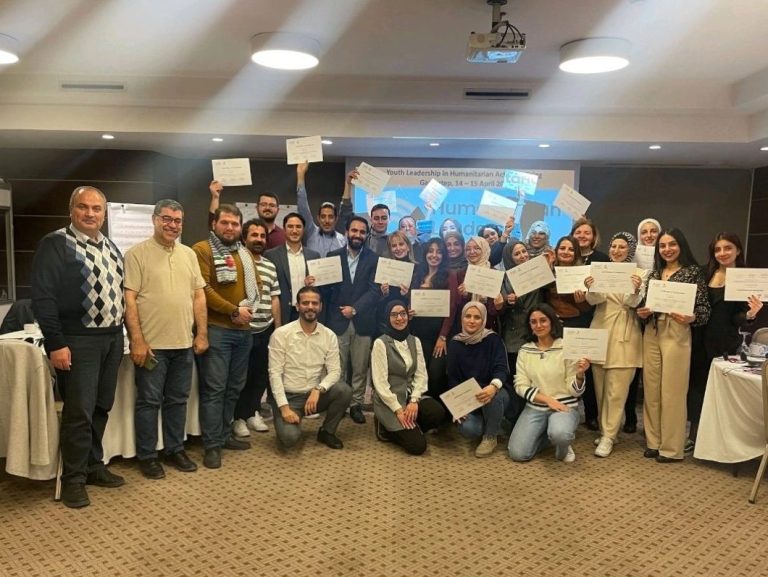On 13-14 December, our team in the Middle East and North Africa (MENA) Regional Centre delivered a face-to-face Education in Emergencies (EiE) Fundamentals training in Beirut. As Lebanon confronts multifaceted challenges, the importance of Education in Emergencies is critical, contributing to social cohesion by providing a structured environment for children, fostering a sense of normalcy during crises, and building resilience in communities and future stability in the country.
Bdour Ghousheh, the HLA’s Middle East and North Africa Regional Lead:
Internal and cross-border displacement, together with political and economic instability, have disrupted regular schooling for local and displaced children in Lebanon, necessitating flexible and responsive education programmes. The Education in Emergencies training in Lebanon addresses immediate challenges, ensures educational continuity for all children, and plays a pivotal role in the nation’s long-term stability and development.

The training applies a hybrid approach, blending online and face-to-face sessions. The participants completed Module 1 online via Kaya, learning the essential bases of EiE, such as the concept of quality education in emergencies, its foundations, and its role in the humanitarian development nexus. Before attending the in-person training, the participants had a 90-minute follow-up session.
The face-to-face sessions were planned according to the needs assessment survey and covered the topics from the further modules of the EiE programme. This part of the training covered how cross-cutting issues restrict access to quality education and provided strategies for mitigating these barriers. During the sessions, participants explored different types of assessment relevant to EiE response and approaches to analysing and applying the data. The training also focused on how education in emergencies programming can contribute to children’s physical and psychological protection and wellbeing, and how parents, communities, education authorities and coordination mechanisms can create an effective EiE ecosystem for children.

Bdour Ghousheh, the HLA’s Middle East and North Africa Regional Lead:
This training initiative represents a significant milestone in Lebanon, marking the first concerted effort to provide Education in Emergencies learning. The collaboration with the UNICEF sector coordinator and Save PDQ Advisor was instrumental in its success. Additionally, the Global Education Cluster played a vital supportive role in the effective delivery of the training. Notably, one CAS graduate provided valuable support in facilitating Module 3 during the training. We had a great attendance, with a total of 25 female and 7 male participants from local and international organisations and the Ministry of Education.

This is a collaborative initiative, led by the Education Sector Coordinator in partnership with Save the Children Lebanon and the Humanitarian Leadership Academy, which aims to provide our partner staff with a comprehensive training experience through the globally recognised Education in Emergencies Fundamentals course.


